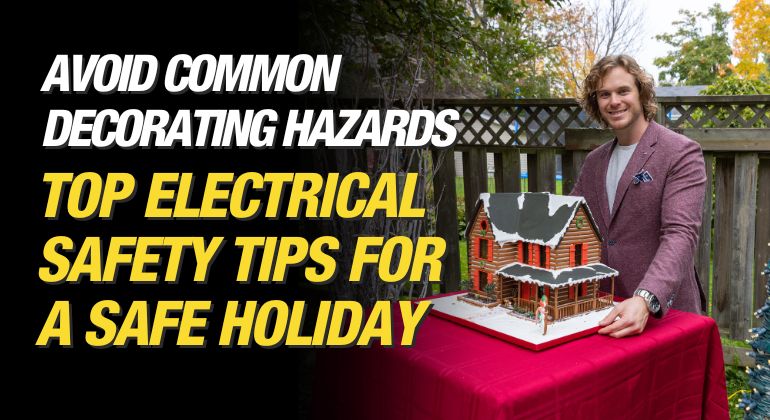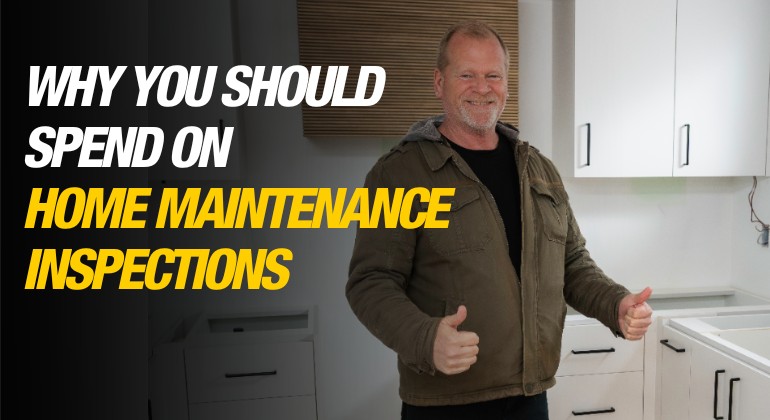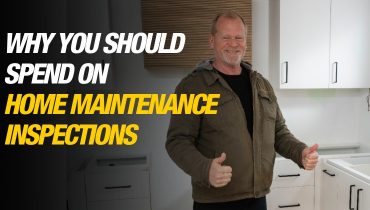When Lisa Marie and I started planning our new primary bathroom, we agreed on one thing right away. We had to use Schluter Systems to ensure the wet-room bathroom waterproofing...

Top Electrical Safety Tips for a Safe Holiday Season: Avoid Common Decorating Hazards
By Mike Holmes Jr
Mike’s Advice / Electrical
Tuesday, November 26th, 2024 @ 1:22pm
How Safe Are Your Holiday Lights and Decorations This Season?
I can’t believe we are in the final months of 2024 – which means the holidays and all the decorating that comes with this will soon be here. I’ve learnt a lot from my dad, Frank, and working with the Electrical Safety Authority (ESA) about electrical safety. Even though I’m not a Licensed Electrical Contractor, I try to learn as much as possible about electrical safety, and so should homeowners, especially regarding product safety.
Here are some electrical safety tips to keep you safe this holiday season.
Check for Certification Marks: Ensure Products Are Approved for Use in Canada
When we purchase electrical products, we assume they have been tested and certified by a Standard Council of Canada accredited certification body such as CSA or UL. For most electrical products, it is. However, some fall through the cracks and other products may have unfortunate defects.
Also, new and innovative products coming from other countries, for example, if you’re in Canada and ordering a product from the USA, may still be in the preliminary stages of being approved for Canada and don’t have the proper marks.
Electrical products that plug into an electrical outlet must meet Canadian national safety standards and be certified by an accredited certification body. Using uncertified products increases the risk of electrical shock, overheating, and fire. Uncertified items may not be constructed to meet the requirements of the Canadian national standards.
The ESA (Electrical Safety Authority) is responsible for the electrical safety of commercial and industrial products in Ontario and the approval of all electrical products used or sold in Ontario. They work very closely with agencies, like Health Canada to help enforce consumer product safety.
WHAT TO LOOK FOR
Before purchasing electrical products that plug into an electrical outlet, here’s what you should look for:
- Always check that certification marks, such as CSA, cUL, or cETL are present and correctly spelled. For the full list of certification marks approved for use in Canada go to ESA.
- Be wary of products with labels that are peeling off, have smudged print, or appear poorly made. Look for common misspellings or unusual logos, as these can indicate a counterfeit product.
- For products bought online, don’t forget to also verify the brand’s reputation and look up reviews to see if there have been reports of defects or safety issues.

Common certification marks in Canada to look our for when buying a generator. For the full list of certification marks approved for use in Canada go to ESA.
READ MORE
THE DANGER OF DIY ELECTRICAL WORK
Read more about protecting your homes from electrical fires.
Avoid Overloading Power Bars and Extension Cords
Nothing says the holidays like an overabundance of extension cords and power bars.
My sister, Sherry, goes all out when it comes to holiday decorating, especially Christmas. The amount of Christmas décor and decorations is staggering – and a lot of her items require power. That means using extension cords and power bars.
Don’t get me wrong, I love Christmas, especially this year since my young daughter is now old enough to experience all the lights and wonder. It will be a very special time. But it would be best to do all your holiday electrical decorating safely to keep your family safe.
Overloading power bars and extension cords can lead to serious issues. When too many devices are plugged into a single power strip, it can exceed the rated capacity, causing the strip to overheat.
Overheating can melt the insulation, exposing wires and increasing the risk of electrical fires. This is especially common during the holiday season when people add lights, inflatables, and other décor to their home’s existing electrical load.
Fuses that blow often and circuits that trip can also indicate that too many items are connected to the circuit. If this happens, don’t ignore it. Connect with a Licensed Electrical Contractor to ensure there are no underlying issues.
And, finally, don’t forget to check for those certification marks too!
Additional Power Bar Safety Tips
- Power Capacity: Use a power strip with a built-in surge protector and ensure it can handle the wattage of all plugged-in devices. If a power strip feels hot to the touch, immediately unplug it.
- Extension Cord Safety: Never connect multiple extension cords together. This can increase resistance in the cords, leading to overheating.
- Check the Gauge: Thicker cords (lower gauge numbers) can handle more current. For high-wattage devices, use a cord with a gauge of 14 or lower.
HOMEOWNER TIP:
Avoid running extension cords under carpets, tree skirts or at ground level where they can be a stepped on or be a tripping hazard, and ensure all furniture is out of the way of extension cords and not on top of the extension cords.
Don’t Use Damaged Electrical Cords
Unsafe electrical décor can really put a damper on your holidays. Every year, always examine your electrical decorations, electrical cords, and power bars for any signs of aging or fraying cords. If you see any of this, replace it with new ones immediately.
Frayed or cracked cords can expose the internal wires, increasing the risk of electric shock or fire. Pets or young children chewing on these cords can suffer serious injuries. Damaged insulation may also allow moisture to come into contact with the wires, especially if used outside, leading to potential electrical faults.
Unsafe electrical décor can cause shocks to your hand or wrist or something worse, like a fire in your home. Also, to prevent shock or serious injury to your pets, keep them away from all cords to prevent chewing.
What to Look For:
- Exposed Wires: Check for visible copper wiring or tears in the insulation.
- Hot Spots: If the cord feels warm or hot in certain areas, it could be a sign of an internal short circuit.
- Burn Marks: Dark spots or discolouration on the plug or along the cord can indicate previous overheating.
READ MORE:
Using Space Heaters Safely During Winter
Since most of us are heading into the cooler weather I must mention electrical safety and space heaters. Space heaters need to be plugged directly into the electrical outlet. Do not use an extension cord or power strip, which could overheat and result in a fire. Also, do not plug any other electrical device into the same outlet as the heater, and place space heaters on level flat surfaces away from any obstructions.
SAFETY TIP:
Opt for heaters with built-in safety features like tip-over protection and overheat sensors. Also, make sure to keep space heaters at least three feet away from any objects. Never place them on furniture or near water sources, like the kitchen or bathroom.
Essential Tips for Hanging Holiday Lights
Decorative lighting is a staple when it comes to holiday decorating and there are some safety tips you should keep in mind.
Be sure to use the proper clips for securing lights and decorations. Do not use staples or nails—they can damage electrical cords. Also, when stringing lights together, don’t connect more than three in a row. This is a general rule but always review the manufacturers’ guidelines to ensure you are using the product correctly.
Choose the right lighting for the location: string lights and other decorations are rated for indoor or outdoor use. Use only outdoor rated electrical cords for outside use – the same goes for inside use. However, you can use outdoor rated electrical cords inside, just not the other way around.
Don’t forget! All outdoor lights should only be plugged into Ground Fault Circuit Interupters (GFCI)-protected outlets.
And, if you plan on hanging outdoor lights, please have a spotter when using a ladder or better still hire a company to do the work for you – and also be aware of overhead power lines.
DID YOU KNOW?
Most permanent exterior lighting requires a permit. If you live in Ontario, check with ESA or the electrical governing board in your region to confirm what is required.
READ MORE:
Find out more about filing for electrical permits and work notifications in Ontario
5 Electrical Permits Myths – Understanding Electrical Permits
CHRISTMAS TREES
Christmas tree lights, whether a pre-lit tree or you’ve added your strings of lights, keep safety in mind. While pre-lit Christmas trees are generally safe to use, there is always a risk of fire if the lights are on for too long or if there is a fault with the wiring.
The same rules apply to real trees: keep the tree away from any flammable materials, and don’t leave your lights on when unattended. Even better, consider getting a timer for both indoor and outdoor lights.
RELATED
Use Holiday Inflatables Safely: Avoid Overheating and Damage
Inflatables have been popping up everywhere and they are super fun, but it’s important to follow the manufacturer’s guidelines on usage which may include not running them 24-7. Choose prime times to display your inflatable.
Also, it’s best to deflate the display overnight and in any inclement weather. Again, remember to check and use the proper outdoor extension cords, and only plug them into a GFCI outlet – the one with the reset button.
RELATED
Electrical Holiday Safety Tips from the Electrical Safety Authority
Electrical safety should be at the top of your mind this season. As you start to set up your décor and lights for the coming season of celebrations make sure to inspect all your electrical supplies and decorations before you use them. If certain items, like electrical cords, look worn or are starting to fray, don’t use them, replace them. Also, consider timers to help regulate when your lights come on and off.
HOMEOWNER TIP:
Store holiday decorations and string lights in a cool and dry area of your home or apartment. Wrap them up neatly, but not taught and use ties to keep them in place. This will save you from the untangling nightmare next year.
Follow these tips and have a safe and happy upcoming holiday season!
RELATED:
Hiring a Licensed Electrical Contractor in Ontario: When And How
How to Hire a Licensed Electrical Contractor For Your Electrical Work







